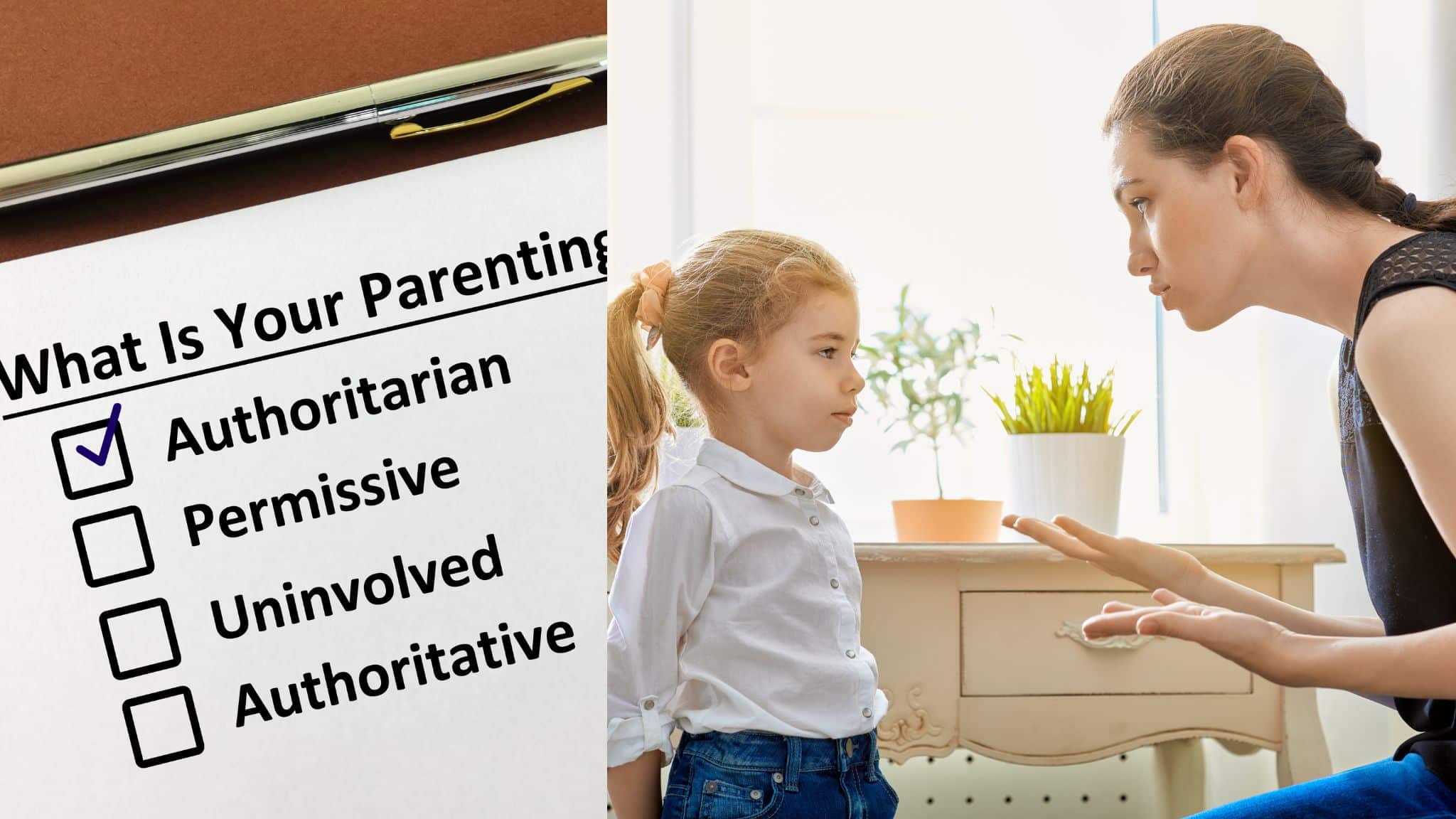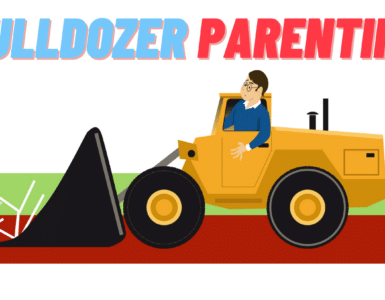The way you choose to raise your child can have a lasting impact on their development, well-being, and relationships. Parenting is quite a daunting journey filled with a mix of love, challenges, and countless hard decisions. And one critical decision you’ll have to make is your approach to your role as a parent.
Authoritative and authoritarian parenting styles, despite their similar names, are distinct. By understanding these differences, you can make informed decisions about how to raise your child and build strong relationships with them.
In this article, we’ll compare authoritative and authoritarian parenting styles, highlighting their characteristics, pros, cons, similarities, and differences.
Which One’s Better?
Although each style has its merits, we believe authoritative parenting offers a more balanced and healthier approach for most families.
This preference is based on research findings and real-life examples that demonstrate the positive outcomes associated with authoritative parenting as opposed to authoritarian parenting.
Drawing inferences from the well-documented longitudinal study by psychologist Diana Baumrind along with numerous subsequent studies, we choose the authoritative.
These studies show that children raised by authoritative parents displayed better psychological well-being, social competence, and academic performance compared to their counterparts raised by authoritarian parents.
In real-life situations, children raised with an authoritative approach tend to develop a strong sense of self and intrinsic motivation. For instance, consider a child who struggles with math.
An authoritative parent will acknowledge their child’s difficulties and offer support and guidance, such as by providing additional resources or finding a tutor. Unlike an authoritarian parent, an authoritative parent will also encourage the child to keep trying and take responsibility for their own learning.
Because of this, the child is more likely to become resilient, learn how to solve problems, and have a real interest in overcoming obstacles.
Moreover, authoritative parenting fosters healthy communication and relationships. By actively listening and validating their children’s emotions. Children feel comfortable discussing their thoughts and feelings without fear.
This open communication can be seen in real-life situations, such as a teenager confiding in their parents about a difficult situation at school or seeking advice on handling peer pressure. This trust and open dialogue can lead to stronger relationships.

About Authoritative Parenting
Authoritative parenting is a style that balances high expectations with emotional support. This approach helps children develop a sense of autonomy, effective communication skills, and problem-solving abilities.
There is a lot of research that supports the idea that authoritative parenting is an ideal way to raise children. Building off on the work of Diana Baumrind, several subsequent studies have shown that children who are raised under the guidance of authoritative parents fare better in almost every way. They are more psychologically well-adjusted, have better social skills, and perform better in school.
The essence of authoritative parenting lies in its capacity to provide a warm, supportive atmosphere while specifying boundaries. This arrangement bolsters a child’s self-confidence, self-control, resilience, and sense of identity.
Characteristics of Authoritative Parenting
1. Emotional Warmth and Support
Authoritative parents are responsive to their children’s needs and provide emotional warmth and support. They validate their child’s emotions and work together to address any concerns or problems.
2. Clear Expectations and Guidelines
While authoritative parents set high expectations for their children, they also establish clear guidelines and explain the reasoning behind them. This approach helps children understand the consequences of their actions and learn from their mistakes.
3. Encouraging Independence
Authoritative parents empower their children to make decisions and learn from their experiences. They give their kids chances to learn how to solve problems and encourage them to take responsibility for what they do.
4. Active Listening and Open Communication
Effective communication is a cornerstone of authoritative parenting. Parents actively listen to their children’s ideas and thoughts, which encourages mutual respect and open communication.
5. Consistency in Discipline
In authoritative parenting, discipline is fair, consistent, and is meant to correct children with love instead of focusing so much on punishing them. Parents use logical consequences and positive reinforcement to guide their children’s behavior.
Pros
- Positively impacts a child’s mental health
- Fosters high self-esteem and intrinsic motivation in children
- Promotes open, honest, and healthy communication and relationships in the home
- Fosters a sense of responsibility in children
- Allows children to think for themselves, hence they develop decision-making skills
- Nurtures emotional intelligence and empathy
- Builds a strong foundation for positive relationships in adulthood
Cons
- Requires a great deal of emotional intelligence, patience, and support from parents
- There’s a potential for overly permissive behavior
- May be difficult for parents with a more authoritarian upbringing to adopt
- Inconsistency in applying the approach may lead to mixed messages for the child
About Authoritarian Parenting
Authoritarian parenting, a method that casts its roots deep into the soil of obedience and conformity, stands in stark contrast to the compassionate warmth of authoritative parenting. This approach emphasizes adherence to rules and a rigid hierarchy within the family structure.
According to Diana Baumrind’s concept of authoritarian parenting, it is characterized by high demands and low responsiveness. Further studies by Laurence Steinberg et al. highlight the tendency of authoritarian parents to value control over open communication.
Because of this, children often grow up with a strong respect for authority, but they may find it hard to make healthy relationships and figure out how to act in social situations.
Though the fruits of authoritarian parenting may sometimes yield a sense of order and control, the cost of this method is its long-term impact on children. They tend to have stifled emotional growth and intelligence and are usually less resilient.
Characteristics of Authoritarian Parenting
1. High Expectations with Low Warmth
Authoritarian parents have high expectations for their kids, but they may not give them the emotional support and warmth they need to grow up well. They often focus on achievement and obedience rather than nurturing their child’s emotional needs.
2. Strict Rules and Regulations
Authoritarian parenting involves a rigid structure with strict rules and regulations. Parents often expect their children to follow these rules without questioning or discussing them.
3. Control and Dominance
Authoritarian parents try to control and dominate their kids. They often use fear or intimidation to get their kids to do what they want. They may be less willing to engage in open communication and may not validate their child’s emotions or concerns.
4. Limited Communication and Feedback
In authoritarian households, communication is typically one-sided, with parents dictating expectations and dishing out consequences. There may be limited opportunities for children to express their thoughts, feelings, or concerns.
5. Harsh and Punitive Discipline
Discipline in authoritarian parenting is often harsh and punitive. Parents may use physical punishment or other harsh methods to get their kids to obey and stop them from doing things they shouldn’t.
Recent research suggests that children who are raised in authoritarian homes experience more anxiety, depression, and low self-esteem than those brought up in more nurturing homes.
Pros
- Clear structure and rules that breed orderliness
- Entrenches high regard, respect, and obedience to authority
- Instills a strong sense of discipline
- Encourages respect for authority
- Provides a structured environment
- May result in better compliance in the short term
- Can create an orderly household
Cons
- May harm a child’s mental health and emotional development
- May result in self-esteem issues and a lack of motivation
- Can lead to strained parent-child relationships
- Impairs one’s social competence
Similarities Between Authoritative and Authoritarian Parenting
While authoritative and authoritarian parenting styles may appear distinct at first glance, they share certain commonalities that shed light on the complex nature of parental guidance.
Though their approaches differ in significant ways, they each represent a dedicated effort to guide children toward success and happiness.
- High Expectations: Both authoritative and authoritarian parents set high expectations for their children. Parents dedicate extra effort to set their children up for success and expect nothing less than their very best effort at achieving just that. Both parenting styles encourage kids to strive for excellence academically, behaviorally, and in extracurricular pursuits. A practical example is the emphasis on completing homework and maintaining good grades at school.
- Value of Structure: These parenting styles share an appreciation for structure and consistency within the family unit. Clear boundaries and routines help children develop a sense of responsibility. For instance, both authoritative and authoritarian parents may establish consistent bedtime routines and other specific household rules.
- Emphasis on Discipline: Both parenting styles emphasize the importance of discipline in shaping their children. They understand that consequences are necessary for teaching children right from wrong and helping them develop self-control. In both cases, parents implement consequences for misbehavior, such as grounding.
- Parental Involvement: Given the fact above, a high degree of parental involvement in children’s lives should not be surprising. Parents are deeply invested in their children’s well-being, striving to guide them toward a successful future. This involvement may manifest in ways such as regularly attending parent-teacher conferences, closely monitoring their children’s grades and every other activity that shows they are actively involved in their kids’ life.
- Long-term Goals: Authoritative and authoritarian parents ultimately share similar long-term goals for their children, such as instilling a strong work ethic, developing good manners, and fostering responsible behavior. Even though their methods may be different, both styles of parenting aim to help kids grow up to be happy, successful adults.
Differences Between Authoritative and Authoritarian Parenting
While authoritative and authoritarian parenting styles share certain similarities, they diverge in significant ways that impact the parent-child relationship and children’s development.
- Emotional Support and Responsiveness: Authoritative parents offer a high level of emotional support and responsiveness to their children. They actively encourage open communication and listening to their children’s concerns. In contrast, authoritarian parents are far less emotionally available, prioritizing obedience and compliance over emotions.
- Flexibility and Adaptability: Authoritative parents are more flexible in their approach. They are willing to adjust their expectations and rules based on a child’s individual needs and circumstances. Authoritarian parents, however, tend to be rigid, enforcing strict rules and expectations regardless of what the child wants.
- Encouragement of Independence: Authoritative parents foster a sense of autonomy and independence in their children, promoting critical thinking and problem-solving skills. Authoritarian parents, on the other hand, stress what must be done and adherence is not negotiable. This may stifle independent thought and the decision-making process of the child.
- Discipline and Consequences: While both parenting styles use discipline to guide behavior, authoritative parents are typically less strict. They employ natural or logical consequences for flouting rules and explain the reasons. Authoritarian parents often rely on punitive measures to enforce rules and demand compliance without explanation.
- Respect and Power Dynamics: Authoritative parents are respectful and fair to their children. They maintain a more egalitarian power dynamic within the family, value their children’s opinions, and encourage dialogue. Conversely, authoritarian settings are vastly hierarchical and children are expected to respect and obey their parents without question. There is almost no room for their emotional concerns.
- Expression of Affection: Authoritative parents openly express affection and warmth toward their children while authoritarian parents may be more reserved. In authoritative settings showing affection is perceived as a weakness or misconstrued such that children may assume they have their parents’ consent to do as they like. Summarily, there is limited room for an emotionally supportive atmosphere.
- Impact on Child Development: Authoritative parenting is more likely to make children feel good about themselves and have good social skills. Authoritarian parenting, however, can lead to children experiencing anxiety disorders, low self-esteem, and difficulty forming healthy relationships.
Conclusion
In this article, we’ve looked at two parenting styles and their similarities and differences to better understand each approach. While both styles share common elements, such as high expectations and a focus on structure, they differ in significant ways that impact the parent-child relationship and children’s development.
There is no single “right” way to parent since different families and children will respond differently to different approaches. Ultimately, the best parenting style for a child depends on several factors, including the family’s cultural norms and values and the child’s individual needs.
Parents should be willing to change their ways if they need to in order to give their kids the best environment for growth and well-being. Doing so can help the kids grow up to be self-assured, caring, and strong people who can handle life’s challenges and thrive in a complicated world.









Add comment